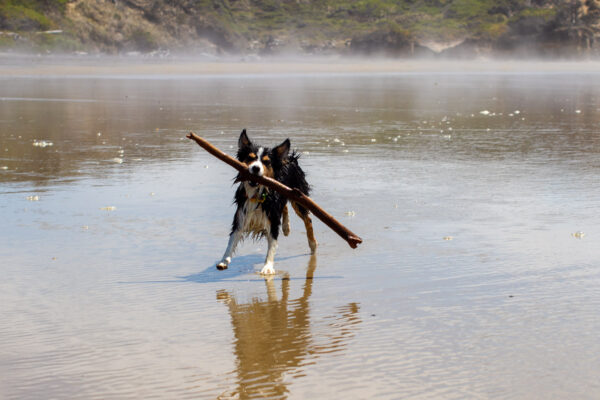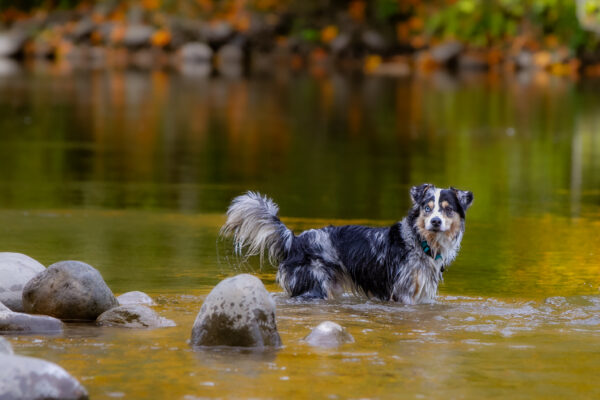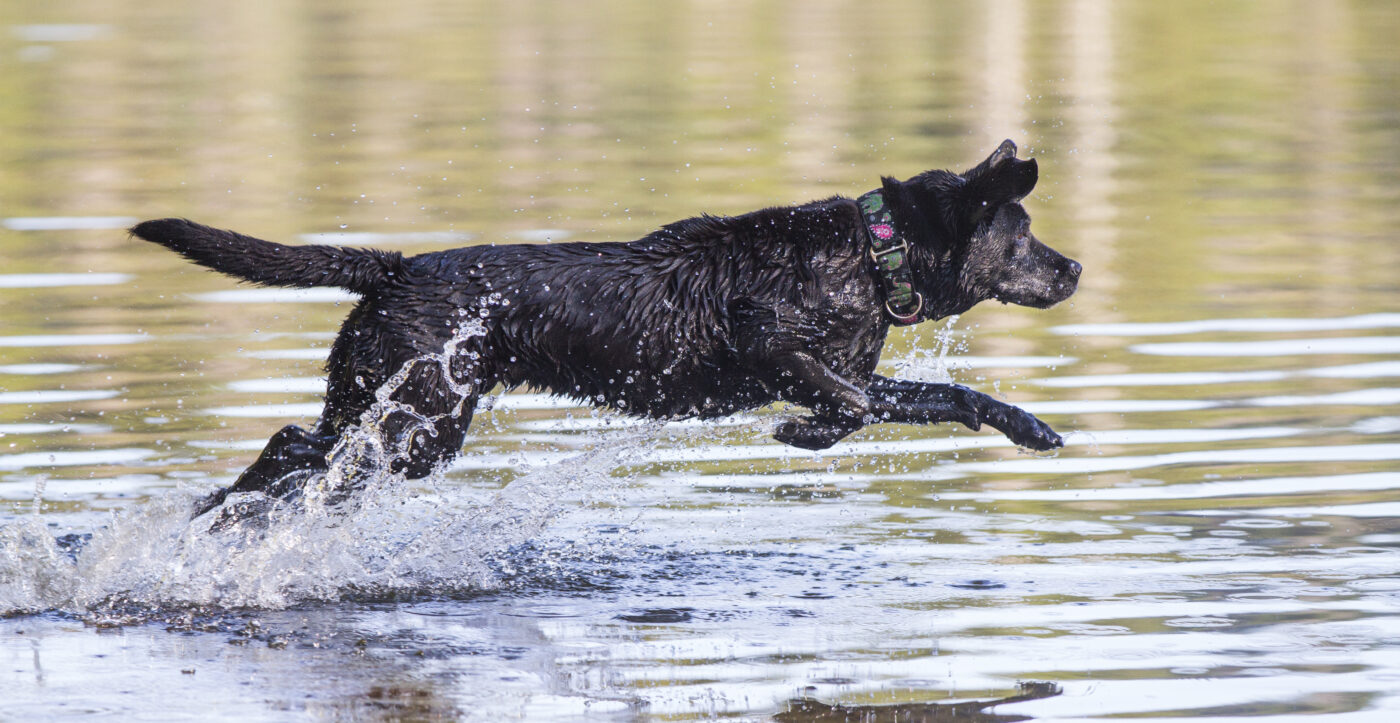Central Oregon offers amazing swimming and water adventure opportunities for us and for our dogs!! There is truly nothing better than a refreshing swim on a hot day for so many of our dogs!
While most of us are familiar with blue-green algae poisoning, we want to be sure that everyone playing in and around water with their dogs is also familiar with the possibility of fresh water intoxication.
Fresh Water Intoxication
Dogs who love to retrieve:
Dogs who love to retrieve will naturally ingest water with each retrieve. This is fine for a handful of repetitions but it’s important to closely moderate the number of retrieves and duration of play while allowing at least 30 minutes of rest between play sessions.
Additionally, it’s important to note that the larger the object the wider your dog’s mouth needs to be in order to hold the object, resulting in an increased volume of ingested water.
Allowing them to swim to the object rather than pounce on it, can also help reduce the amount of water they ingest.
Dogs who love to BITE water:
Many dogs LOVE biting at water, whether from a hose or through self made splashing games at the edge of the shore or in a kiddie pool. While this is a great way to keep dogs cool, it’s important to limit this game and to pay close attention to the number of repetitive “bites” your dog is doing.

Excessive consumption of water:
Excessively drinking water in an effort to cool off and rehydrate can also be hazardous, especially when done in a very short amount of time. It is important to monitor your dog’s response to warmer temperatures so that you can find a cool, shady spot to rest and recover while allowing moderate amounts of water over an extended period of time. If you see your dog’s tongue look like a spade, they have exceeded their ability to cool themselves.
What exactly happens?
When your dog ingests too much water too quickly an imbalance of electrolytes in your dog’s bloodstream and cells can occur, resulting in swelling of the cells and brain. Symptoms may include disorientation, nausea, distended abdomen, lethargy, lack of coordination, pale gum color and dilated pupils.
If severe, your dog may have seizures, fall into a coma or even die.
Other important tidbits:
Small dogs can more quickly be affected by water intoxication, simply due to the time/size/volume ratio. If you have a smaller dog (less than 15 pounds), be sure to significantly shorten the amount of play time in and around water.
Dogs who show compulsive behavior around water may need to be micromanaged. Compulsive behavior is behavior that the dog is not likely to voluntarily stop doing, leaving it up to us to prevent them from self harm.
It’s important to recognize that water intoxication, heat stroke and blue-green algae toxicity all have very similar symptoms. Be sure to discuss the exact situation with your animal care team so that they can get to a diagnosis and treatment as quickly as possible.

What to do:
If you suspect water intoxication please call and then go directly to your veterinarian or nearest veterinary emergency practice. The sooner the better.
Do not attempt to treat your dog with an electrolyte drink as they are already in a very compromised state of electrolyte imbalance. There is currently not enough evidence to support the benefits of oral electrolyte replacement in dogs so if you suspect water intoxication, your veterinarian will need to check laboratory values in order to appropriately treat.
At Stride, we believe knowledge is power! If you know someone with a water loving dog, be sure to share this!
Local Veterinary Emergency Clinics:
Bend Animal Emergency and Referral Center – 541-285-9110
Veterinary Referral Center of Central Oregon – 541-209-6960

